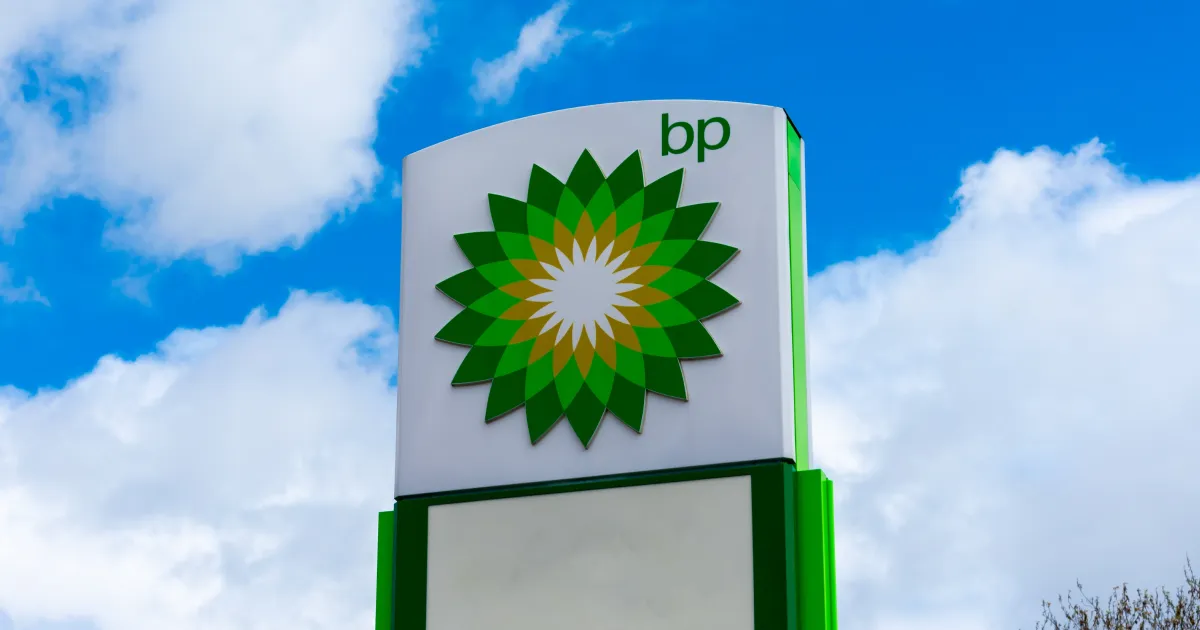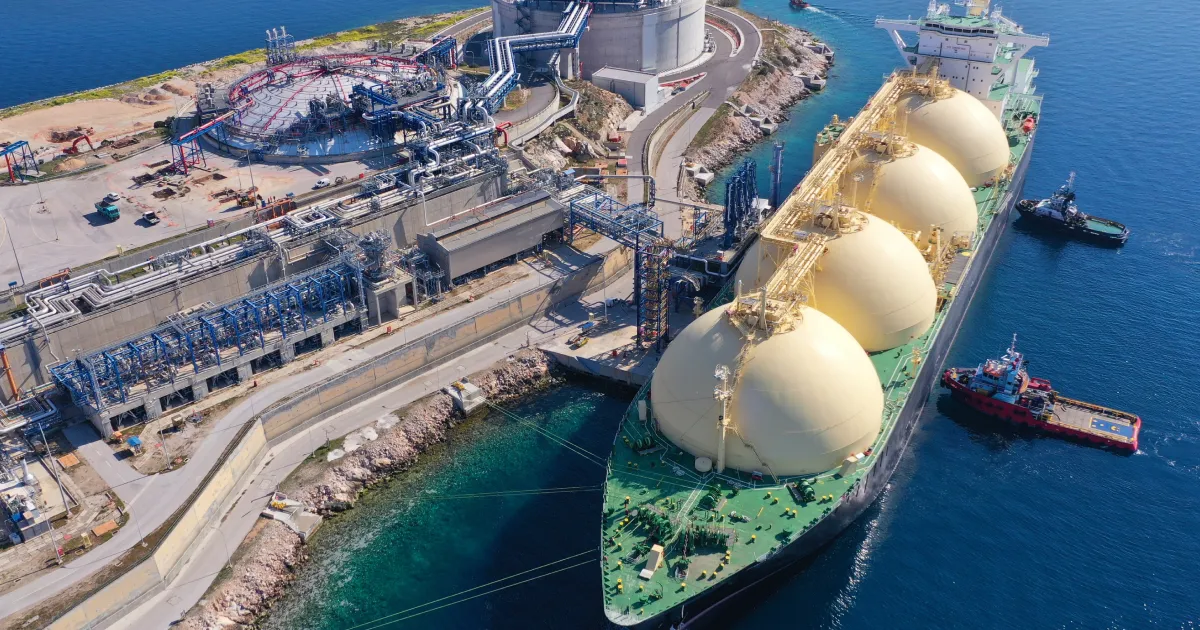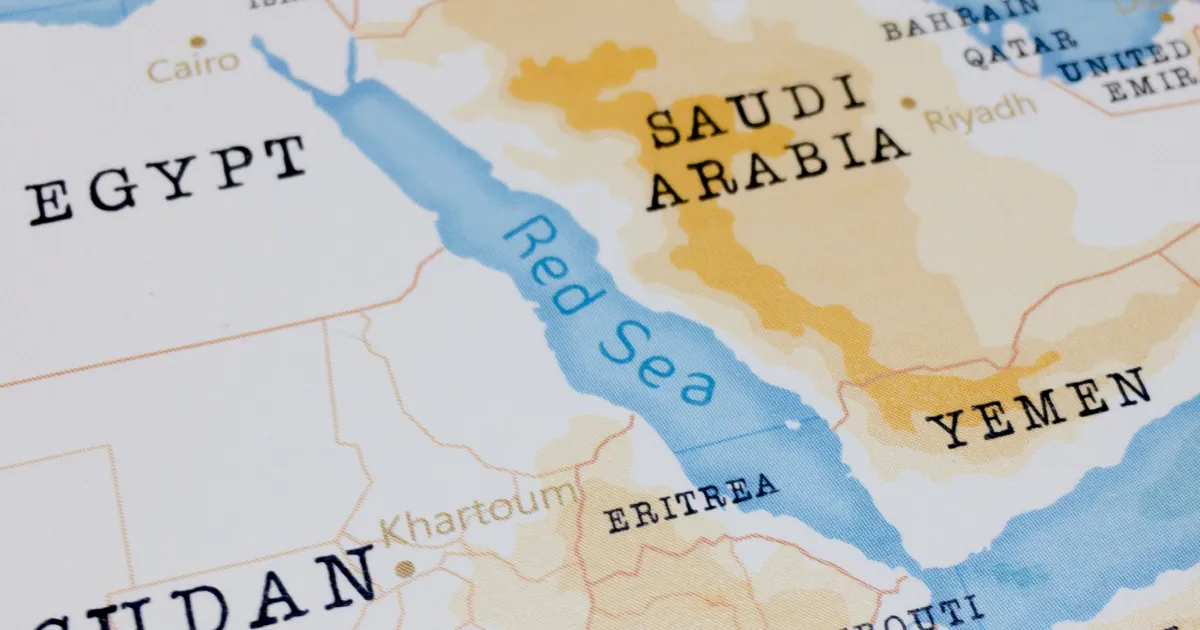Understand how the recent Red Sea ship attacks are impacting global supply chains and how to mitigate potential risks.
Following the recent attacks launched by Yemen’s Houthi group on cargo ships in the Bab al Mandeb Strait at the southern end of the Red Sea, several major global shipping and oil companies – including Maersk and British Petroleum (BP) – have suspended shipments and halted operations in the area. Ships are avoiding Egypt’s Suez Canal, the shortest maritime route from Europe to Asia and one of the world’s most important waterways, which accounts for about 12% of the world’s shipping traffic. This is causing longer journeys, which have added costs, increased oil prices, and increased insurance premiums.
In this blog, we will look at the supply chain and logistics impact of the Red Sea ship attacks and discuss what businesses can do now to preserve supply chain resilience.
Which companies have halted operations in the Red Sea?

Over the last month, the Houthi group has launched approximately 100 attacks against 12 different commercial and merchant vessels, according to CNN. The group pledged to target vessels believed to be traveling to and from Israel to put pressure on the country to stop the bombing of the Gaza Strip during the Israel-Hamas war.
Most recently, on Monday, the Houthi group attacked two commercial cargo ships belonging to the Mediterranean Shipping Company (MSC) and Swan Atlantic using drones. Last Friday, two containerships from Hapag Lloyd and MSC were also hit with ballistic missiles. Following these attacks, Resilinc’s 24/7 supply chain monitoring system, EventWatchAI, sent out alerts saying the following companies have halted or rerouted operations near the Yemeni coast:
| Maersk: One of the world’s largest shipping companies. Paused container shipments through the Red Sea until further notice (Dec 15).
Hapag-Lloyd: Shipping and container transportation company. Rerouted to the Cape of Good Hope (Dec 15). Mediterranean Shipping Company (MSC): A global shipping and logistics company. Rerouted ships away from the Red Sea (Dec 16). CMA CGM S.A: Shipping and container transportation company. Suspended passage through the Red Sea (Dec 16). Orient Overseas Container Line (OOCL): A shipping company based in Hong Kong. Will stop transporting cargo to and from Israel (Dec 17). Evergreen: Headquartered in Taiwan, Evergreen is a global shipping company. Will stop accepting Israeli cargo and suspend Red Sea shipments. (Dec 18)
|
British Petroleum (BP): Headquartered in London, BP is a multinational oil company. Paused all shipments through the Red Sea (Dec 18).
Ocean Network Express (ONE): A shipping and vehicle logistics company. Will either navigate its vessels around the Cape of Good Hope, South Africa, or temporarily pause their journey and reposition them in a safe location. (Dec 19) COSCO Shipping Line: Logistics and supply chain management company. Will suspend shipments. (Dec 19) Wallenius Wilhelmsen: A shipping and container company. Will reroute shipments. (Dec 19). Nippon Yusen: Transportation and logistics. Suspended shipments through the Red Sea (Dec 19). Yang Ming Marine Transport Corporation: Container transportation. Suspended shipments through the Red Sea (Dec 19).
|
How big is the supply chain impact of the Red Sea attacks?
Resilinc’s President of Government/Defense/Aerospace, Peter Guinto, joins CNBC’s “Last Call” to discuss the supply chain impact of the cargo ship attacks in the Red Sea along with the freight stuck at two Texas border crossings that are temporarily shut down.
On December 7, the Suez Canal Authority estimated that only 55 cargo ships had rerouted around Africa since November 19. In the same time period, 2,128 passed through the canal, but this only represents about 3% of the ships that typically pass through. According to logistics company Keuhne+Nagel, that number has now jumped to more than 100 vessels that have rerouted from the Red Sea around Africa since the start of the attacks. Affected by the situation, the European Mediterranean route has doubled the European basic port freight, reaching $3,700; the Mediterranean route has reached $6,000, and the Israeli Red Sea route has gone above $6,000.
Another factor complicating things is the situation at the Panama Canal: the severe drought there is causing delays for shipping companies (Read more in our Special Report: Bridge the Gap – How Industries are Adapting to the Panama Canal Drought.) For shipping companies that face troubles in both canals, this could cause significant shipping delays. Currently, the primary alternate route for both is the Cape of Good Hope—located at the Southern tip of Africa—which can extend journeys over 14 days, depending on where shipments are coming from. When it comes to rerouting oil shipments, a longer journey increases the chance of hazards such as ships breaking down and weather impacts, which can result in oil spills.
For now, we may see a few weeks of delays in shipments, freight rate increases, insurance premium increases, and carriers looking to utilize excess capacity. Currently, insurance costs have doubled for shippers moving through the Red Sea, according to AP News, which can add thousands of dollars to a journey. Many insurance companies have even refused to cover shipments crossing the Red Sea, with some insurers adding a $5,200 war risk surcharge. If the situation escalates and more ships reroute (nearly a 6,000-mile, two-week trip), we will see more significant impacts on a macro level—perhaps enough to meaningfully impact inflation. The CEO of the Federation of Indian Export Organizations (FIEO) said that if the situation continues or gets worse, “freight rates could jump 25-30%.”
Which industries could be impacted by the Red Sea attacks?

Various sectors, including oil/gas, consumer goods, lumber, and food may experience repercussions. However, the severity of the impact varies across industries. Take for instance, Europe, which is entering its peak demand season for oil and gas. The ongoing war between Russia, (traditionally Europe’s primary supplier) and Ukraine is disrupting the EU supply chain, and gas prices are on the rise. The global benchmark for oil, Bent crude, has risen 2.7% to $78.64, while US oil rose 2.8% to $73.44 a barrel. Consequently, industries heavily reliant on these resources will face more significant consequences compared to sectors such as consumer goods, where peak holiday shopping is winding down and items are already on store shelves as inventory buffers.
A few companies have made statements following the attacks: Swedish furniture company IKEA has said some products may face possible shortages, and the company is currently looking for other options to secure products. Meanwhile, US clothing retailer Abercrombie sent an email to suppliers saying it plans to shift to air freight in order to avoid potential delays. The world’s largest appliance company, Electrolux, which works with companies Maersk and CMA, has set up a task force to find alternate routes to avoid disruptions. Taiwan Semiconductor Manufacturing Company (TSMC), the world’s top contract chipmaker, has announced it does not anticipate significant impacts, thanks to its long-established enterprise risk management system.
How can companies prevent this from happening in the future?

The developments in the Red Sea underscore the critical need for stability in the Middle East. They also emphasize the importance for organizations to enhance the resilience of their supply chains by minimizing reliance on a single source and considering strategies such as “re-shoring” or “near-shoring” where feasible. Geopolitical challenges currently represent one of the five supply chain megatrends that Resilinc anticipates will persist or intensify in 2024. For further insights, explore our blog: The Top 5 Supply Chain Megatrends of 2024.
While achieving a completely risk-free supply chain is impossible, companies can proactively manage and reduce risks by establishing close collaboration with their suppliers. A crucial aspect of this approach is gaining a comprehensive overview of the entire supply network, extending across multiple tiers. This involves mapping each level of the supply chain to precisely identify the manufacturing sites responsible for producing the parts and raw materials within the network, as well as understanding their origins.
Notably, a significant 85% of disruptions stem from events occurring in tier 2 and below. Unfortunately, many companies lack visibility at this level. By the time they become aware of disruptions in lower tiers, their options for effective risk mitigation are often limited, resulting in suboptimal outcomes at best.
Resilinc recommendations: what can businesses do?

Right now, businesses should initiate programs to tap into market intelligence tools to help accelerate their visibility into their multi-tier supply networks. In the long term, companies will need to drive towards collaborative relationships with vendors at all tiers and enablement with software that can maximize the outcomes across those networks. To find out if the Red Sea cargo ship attacks have impacted your company, Resilinc has several recommendations.
- Determine which suppliers and shipments may be affected.
- If suppliers or shipments have been impacted, identify parts originating from the affected supplier.
- Check with suppliers to see which mitigations are in progress and communicate with commodity managers, suppliers, and other relevant parties.
- Identify alternate sources that can be activated, such as re-routing freight backup facilities and inventory as applicable.
***
Learn more in this Resilinc Special Report about the impact of Red Sea shipping disruptions, trade routes, industry impacts, and strategic recommendations to prepare for potential disruptions proactively.





